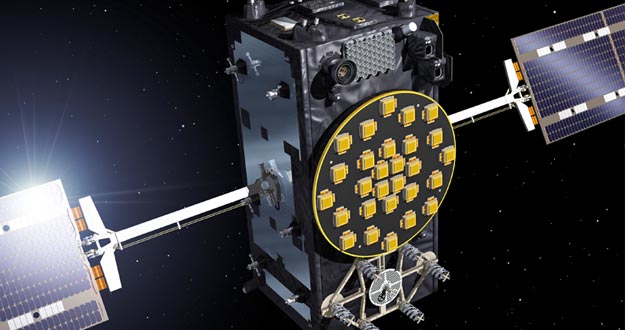Currently, they are a prototype; but, as its creator asserts, "It will lead to other research and applications".
A researcher, from the Polytechnic University of Cartagena (Murcia, East of Spain), Raul Guzman, has a doctorate, with a thesis on antennas electronically reconfigured, with fewer resources than the current and highly efficiently.
"They are antennas for applications, working industry, and they will improve communications, because they will save costs", he commented, to RTVE.es, Guzman, already a Doctor, after passing through the research group Applied Electromagnetism to Telecommunication of the UPCT.
The prototype antenna, documenting his thesis, led by the researcher José Luis Gómez-Tornero, has a low profile, with only 3 inches thick; rectangular, about 30x30 inches; it can be coupled, in intelligent systems, and works with a 5.5 gigahertz band.
The antenna can be reconfigured through four control signals. "In other technologies, sometimes hundreds of signals are used", says Raul Guzman, who notes that they have shown that, using a simple control signal, you have a "great freedom to focus antennas, in certain directions".
Also, no external power is required, because it is integrated into the own antenna. Therefore, the theory could be applied to real cases, whether you continue working with other frequencies, such as 60 GHz band, which whould allow systems with higher bandwidths.
The Doctor, from the UPCT, has clarified that the reconfiguration capability of these antennas, which have very high directivity and are used in very long distance communications, may serve, for example, to avoid having to leave the satellites.

Illustration of a satellite Galileo, from the European Space Station
In this sense, he indicates that, if a satellite can be reoriented with land bases and avoids having to reconfigure, you can extend its life, since these operations require spend fuel.
If it was applied to a plane, that would communicate with a satellite, a case in which both objects are moving, the antenna would follow the satellite orbit and it could avoid interference with other communications, in the same frequency band.
Guzman's thesis, entitled “Analysis and design of new electronically reconfigurable antennas”, is a research base, that sets a new concept to show that "there is another way to reconfigurable antennas".
According says the research director, José Luis Gómez-Tornero, "it is a great contribution to the development of smart antennas, which are reconfigured, to be adapted to the environment and optimize communications".
Due to the high cost and in his University there are no facilities to develop the prototype, the researcher has worked remotely with CSIRO ICT Centre downtown Sydney, to manufacture the proposals antennas.
Raul Guzman is working, since three months ago, at the University of Grenoble, researching technologies for geostationary satellites, requiring experts, in this area, to apply to long-distance communications, he has told.
"The Polytechnic University of Cartagena offers to us a high quality education", stressed Guzman, who regrets that he and the vast majority of his colleagues, after finishing their studies and scholarships, they have to go work in other countries, unable to continue his career in Spain.
"All my colleagues are out, because there are not research projects, for them, to stay", he commented. "Here, they have cut a lot and break down the sector, something goes wrong", the Engineer opined, who thinks that it will impact, on the social level and reputation of Spain.
"I did not want to go out. The reality is that we have a great education; but collaboration between the private sector and academy lacks off", has ruled.
He also told that, during three years, he was able to combine research work, part time, unlike his thesis study, through a grant from the Seneca Foundation. "I was working on a different topic, but it was the only way to finance me", he recounted.
Moreover, Guzman has praised network of professorships of the UPCT, trying to boost collaboration, between universities and companies or entities. "It is a breakthrough, now we have to get them, involved large companies, so that students are redistributed at companies in Spain", he urged.
Well, I hope that economic resources are not finished, in Spain, so that our researchers can continue working on new projects, that help people, in other countries, worldwide.
Until my next post, kind regards,
Luis.
Sponsored by Costaluz Lawyers.
Please click below:
